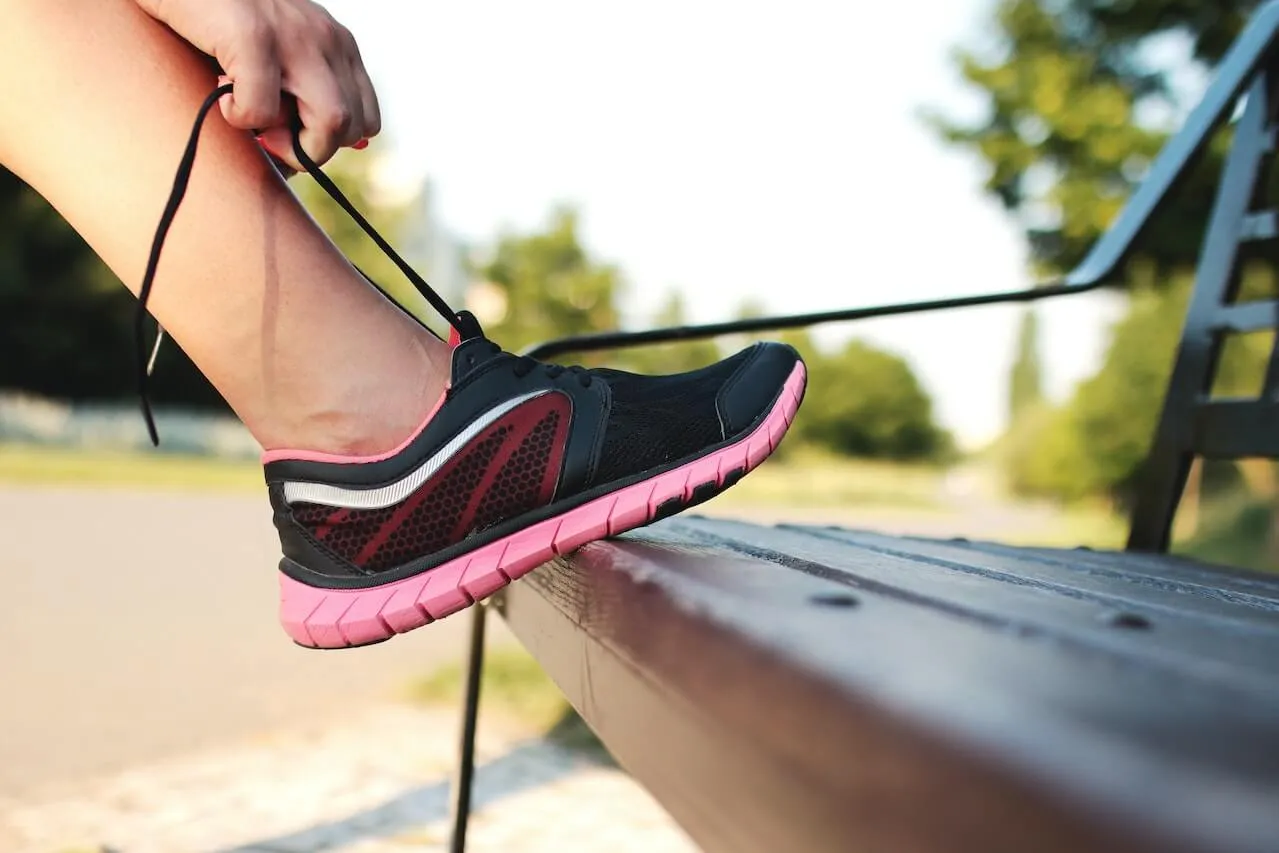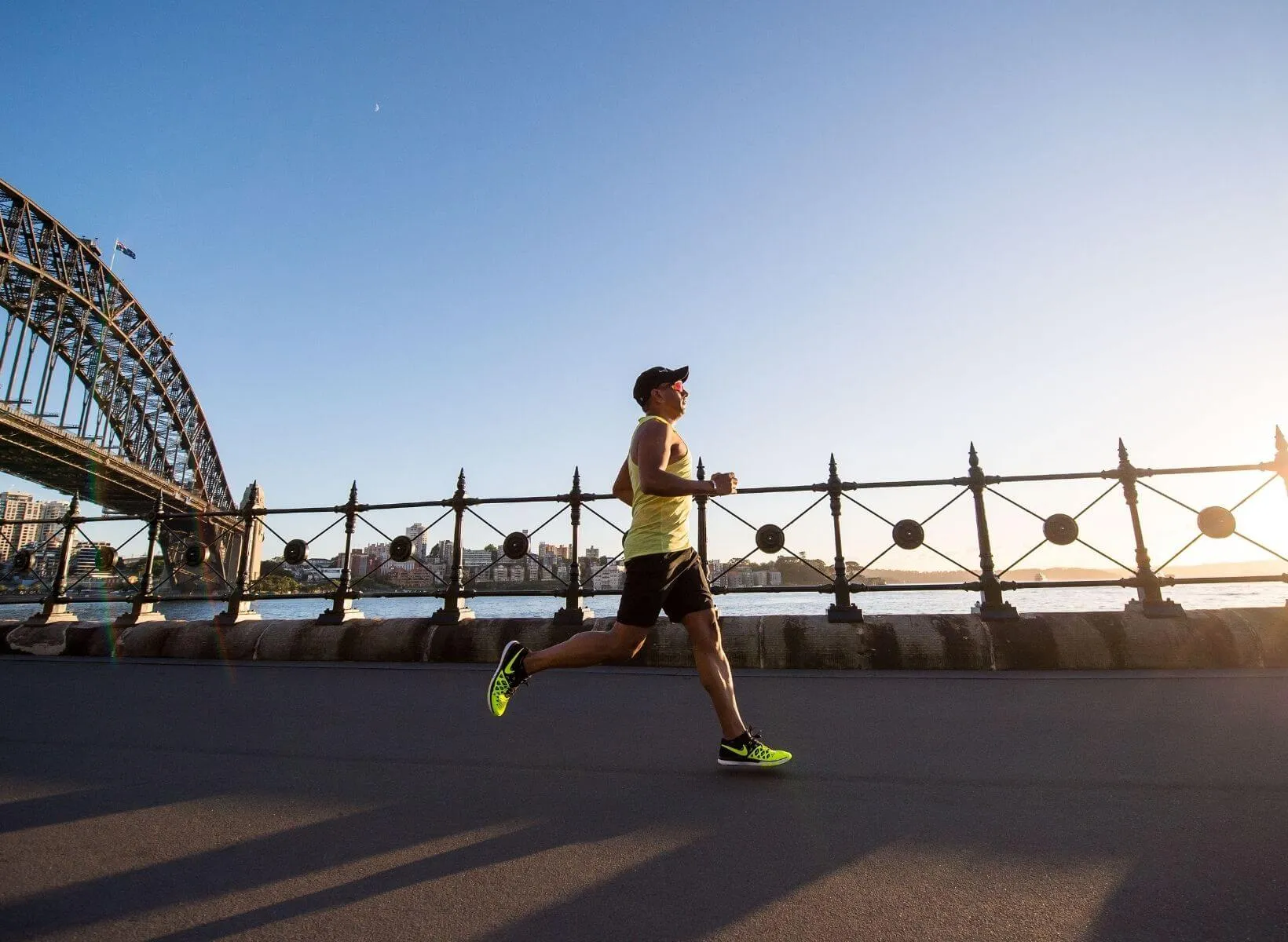Fueling up on the right foods is important for all types of exercise, but it’s particularly important when running. What and when you eat can impact your speed and endurance. Proper nutrition and hydration are essential for your overall health and performance, but there is a fine line between feeling satisfied and sick. In this article, we’ll explain when you should eat before a run.
First Things First: Should You Eat Before a Run?
The short answer is - it depends! Determining whether you should eat before a run depends on a few factors, like the run's duration and intensity, your overall goals, and how you feel. If your stomach is growling and you’re starving, eating something is a good idea. While this won’t significantly impact your physical ability, it can impact your mental ability to stay focused on the run ahead instead of just thinking about your next meal. On the other hand, if your goal is weight loss, running in the fasted state (i.e., on an empty stomach) can help your body burn more fat.1
{{mid-cta}}
Getting Your Timing Right
If you plan to eat before a run, what’s the best time to do it? The goal is to feel satisfied without feeling stuffed or starved. If you eat too soon before a run, you’re likely to experience exercised-induced nausea, but if you don’t eat for an extended period before a run, you may feel lightheaded and tire out more quickly due to low blood sugar.2,3
While your unique genetics, physiology, athletic ability, and preferences play a role in the exact timing that’s right for you, the general rule is you can have a light snack (about 300 calories) 30 minutes to an hour before your run, a small meal (600 calories) 2 hours before your run, and a large meal (1,000+ calories) 3-4 hours before your run.3
You can also experiment with the timing and specific food choice to find out what works best for you. Does mango cause you to cramp more during a run? Try another item, like an apple, to see if the choice impacts your symptoms.

What to Eat Before a Light Run
When deciding what to eat before a run, it’s helpful to think about the intensity and duration. If you’re planning a light run, like track practice or running in your neighborhood, a light snack is probably all you need. Foods rich in carbohydrates, like a piece of fruit, are a good choice for this pre-run snack because they are absorbed more quickly than foods high in fat or protein, giving you a small energy boost to enjoy your casual run. Here are some recommendations for pre-workout snacks:
- A banana
- A small bowl of oatmeal
- A granola bar or half cup of dry granola
- Half cup of dry cereal
- 15 small pretzels
- A piece of toast with peanut butter (or other nut butter) and honey
- Half cup of grapes
- An orange
- Half of a mango
- Half cup of pineapple chunks
- A Fuji or Gala apple
What to Eat Before a Long Run
What you decide to eat before a run is even more important if you’re a more serious runner preparing for a longer run, like a 10k or half marathon. Ideally, you want a pre-run meal three to four hours before you lace up your shoes. This meal is essential for keeping you full and focused and maintaining steady blood sugar levels so your muscles have the fuel to power through. For this pre-run meal, you’ll want to focus on foods high in carbohydrates, moderate in protein, and low in fat and fiber. Here are some meal ideas to help you crush your next long run:
- A whole-wheat bagel with a turkey sandwich
- An egg white omelet with two pieces of toast and a small banana
- A large baked potato with low-fat cheddar cheese and 3oz of grilled chicken
- One cup of cooked pasta with marinara sauce and 3oz chicken breast
- One cup of cooked oatmeal topped with honey and berries
- A turkey and Swiss wrap with a gala apple
- One cup of cooked jasmine rice with 3oz chicken breast
- Egg white and low-fat cheddar cheese on a whole-wheat bagel
- One cup of cooked pasta with marinara sauce and 3-5 turkey meatballs
- A large baked sweet potato with low-fat sour cream and 3oz chicken breast
For extremely long runs, such as a marathon, you may want to consider an intra-run snack. Glycogen stores can become depleted within one to two hours of constant running, so to refuel and delay fatigue, consider eating a food item that contains 30-60 grams of carbs. Some ideas include:
- Sports drinks: these drinks are packed with electrolytes and carbohydrates to restore energy
- Energy gels: these are concentrated sources of energy-containing carbohydrates, electrolytes, and caffeine. Make sure to be careful with this food product, as they can also contain an increase amount of sugar.
- Energy bars: these contain both protein and carbohydrates, which will help your muscles recover and rebuild.

What to Avoid Before a Run
So now you know what and when to eat before a run, but what foods should you avoid? In the same way that the right food can improve your performance, the wrong food can slow you down. Here are the types of foods you should steer clear of before a run:
- High-fat foods - Foods high in fat, such as fried foods or heavy sauces, are digested and absorbed more slowly, meaning they sit in your stomach longer. No one wants to run on a full stomach, so do your best to avoid these.
- High-fiber foods - While fiber is essential for gut health, large amounts of whole grains that are high in fiber in one sitting can cause gastrointestinal distress. Abdominal pain, gas, and bloating are not helpful when trying to cross the finish line, so it’s best to save high-fiber foods for days you’re not running.
- Spicy foods - Super spicy foods can irritate your digestive system, causing acid reflux, upset stomach, or diarrhea. Stay away from these foods and keep them as bland as possible on race days.
- Caffeine - Although caffeine can provide a helpful energy boost on most days, avoiding it before a run is a good idea. Similar to spice, caffeine can also upset your stomach. Additionally, it can stimulate your colon and increase the frequency of bowel movements (which you don’t want when you’re out for a run!).
- Alcohol - An occasional glass of red wine with dinner can be lovely, but it’s best to hold off on all alcohol until after your run. Alcohol can impact your sleep, increase your risk of dehydration, and affect how your body absorbs nutrients, leaving you feeling fatigued and unable to perform your best. Do yourself a favor and save that glass of celebratory champagne for after the run.
Final Recommendations by Signos
When it comes to running, the way you fuel your body matters. Whether you’re a serious runner focused on performance or a casual runner focused on enjoyment, what and when you choose to eat will have an impact. Here are the key takeaways:
- For shorter lower, intensity runs, focus on high-carb snacks 30-60 minutes before you hit the pavement
- For longer higher, intensity runs, focus on high carb moderate protein meals 3-4 hours before you lace up your shoes
- Avoid foods that are high in fat, fiber, or spice
- Avoid caffeine and alcohol
- Everyone’s biochemistry is unique, so what works for some people may not work for others. Experiment with variations of the recommended foods and times above to see what works best for you.
Learn More About the Signos CGM Program
Signos incorporates cutting-edge research and the proven power of continuous glucose monitoring. The data gleaned from the Signos app can help guide your health journey. Not sure if Signos is right for you? Take this quiz to find out! Interested in learning more about nutrition and healthy eating habits? Check out more articles on our blog.
Topics discussed in this article:
References
- Vieira, A., Costa, R., Macedo, R., Coconcelli, L., & Kruel, L. (2016). Effects of aerobic exercise performed in fasted v. fed state on fat and carbohydrate metabolism in adults: A systematic review and meta-analysis. British Journal of Nutrition, 116(7), 1153-1164. doi:10.1017/S0007114516003160
- T Kondo, Y Nakae, T Mitsui, M Kagaya, Y Matsutani, H Horibe, N.W Read. Exercise-induced nausea is exaggerated by eating. Appetite, Volume 36, Issue 2, 2001, Pages 119-125, ISSN 0195-6663. https://doi.org/10.1006/appe.2000.0391.
- Nancy Clark (1998) Eating Before Competing, The Physician and Sportsmedicine, 26:9, 73-74, DOI: 10.3810/psm.1998.09.1567




.svg)










.svg)
.svg)
.svg)
.svg)
.svg)
.svg)
.svg)
